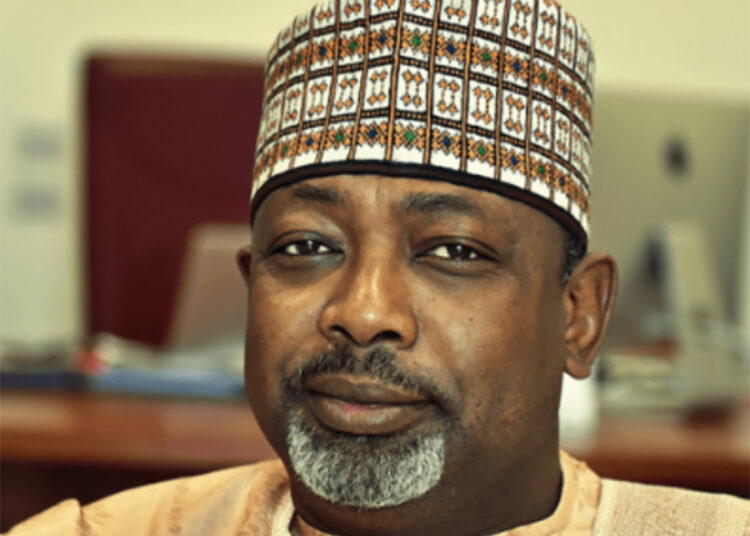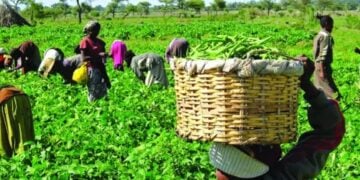With over 85 million hectares of arable land, the minister of Agriculture and Food Security, Abubakar Kyari, has reiterated President Bola Ahmed Tinubu’s drive to ensure that the country ends food importation. He revealed that the ministry has commenced work on a framework to address food transport infrastructure.
Speaking at the First Bank 2025 Agric and Export Expo in Lagos on Tuesday, Kyari lamented that despite the massive land and human resources, the country still spends over $10 billion annually to import food items such as wheat, rice, sugar, fish, and even tomato paste.
Kyari, who was represented by Ibrahim Alkali, said the government is working to ensure the country’s food sovereignty. “Nigeria must not only feed itself, but do so on its own terms, free from excessive dependency on imports. Sovereignty means ensuring that no Nigerian goes hungry because of shocks in global supply chains, and that every community can stand on the strength of our land, our people, and our productivity.
“Agriculture already contributes 25 per cent of our GDP and employs 35 per cent of our workforce. We sit on 85 million hectares of arable land with a youth population where over 70 per cent are under 30. Yet Nigeria accounts for less than 0.5 per cent of global agricultural exports.”
Noting that exports cannot thrive without infrastructure, Kyari said the ministry is working with other relevant ministries to create a framework for transforming food transport infrastructure. This is not just about roads and ports. It is about building efficiency into every step of the supply chain.
“The cost of moving a container from Kano to Lagos is often higher than shipping it from Lagos to Europe. Port congestion, delays, and rejection of Nigerian goods abroad often stem from the lack of certification and compliance with global standards.
“We have the land, the labour, and the markets, but we lack the systems of financing, value addition, and infrastructure that convert potential into prosperity. We must rethink how we finance agriculture to build a non-oil export economy. Traditional credit systems, though well-intentioned, often suffocate farmers instead of supporting them.
Commending First Bank, the minister noted that the bank has long been a pioneer in agricultural finance. “First Bank agricultural portfolio has grown by over N116.5 billion in recent years, supporting farmers, processors, and exporters.
“Through the Commercial Agricultural Credit Scheme, First Bank has financed more enterprises than any other bank, accounting for over 23 per cent of all participation. With its dedicated agricultural finance teams, First Bank supports the entire value chain, from primary production to processing, storage, and export.”
In his welcome remarks, the Managing Director and Chief Executive of First Bank, Mr Olusegun Alebiosu, noted that the 2025 Expo theme, “The Fundamentals of Building an Export-Driven Economy”, is crucial for the country that demands diversification beyond oil and the harnessing of vast opportunities in our non-oil sectors.
“The First Bank Agric and Export Expo stands as a beacon of collaboration, innovation, and sustainable growth. Together, we can chart a course that secures our future prosperity and positions Nigeria as a formidable force in the global marketplace.
We’ve got the edge. Get real-time reports, breaking scoops, and exclusive angles delivered straight to your phone. Don’t settle for stale news. Join LEADERSHIP NEWS on WhatsApp for 24/7 updates →
Join Our WhatsApp Channel










